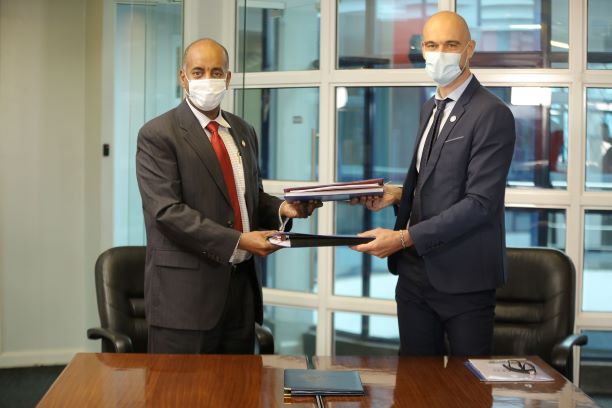A $150 million green financing facility has been availed to countries in eastern and southern Africa to fund green infrastructure projects like renewable energy and strengthen their adaptive capacity and resilience to climate change.
The Trade and Development Bank (TDB) – a multilateral financial institution operating in eastern and southern Africa – on Friday received a $150 million credit line from the French Development Agency (AFD) to finance green projects in its member countries.
The Bujumbura-based TDB is the financial arm of the Common Market for Eastern and Southern Africa (Comesa), with its membership being open to non-Comesa states and other institutional shareholders, including African Development Bank.
The credit facility aims to boost capital flows needed by countries to achieve their nationally determined contributions (NDCs) in climate change mitigation and adaptation, and scale up their investments towards sustainable development goals (SDGs).
“Both AFD and TDB are working to align financial flows to the climate agenda as well as to SDGs” TDB president and CEO Admassu Tadesse said in a statement.
“With now over 70 percent of our energy portfolio in renewables, our expanding partnership with AFD will enable the bank to accelerate further its climate change mitigation and adaptation efforts, and give a boost to the global and regional impetus driving low-carbon development in our member states,” he added.
The bulk of the funds (80 percent) will go into financing projects that seek to reduce or limit greenhouse gas emissions, enhance carbon sequestration, and support adaptation projects in line with the Paris Agreement.
The remaining 20 percent will be dedicated to strengthening TDB’s long-term resource requirements capacity.
Ramping up the volume of green financing flowing across the region is expected to produce sustainable economic development, including triggering economic growth – industrial development and creation of new sectors. It is also expected to lead to a reduction in energy bills while ensuring energy security through construction of additional renewable power projects and spinning off jobs along the projects value chain.
More importantly, the green pot of capital aims to narrow the socioeconomic inequality gaps – including those caused by climate change – by creating direct and indirect employment in the countries benefiting from the financing. Local populations, for instance, stand to benefit from more cash in their pockets during project implementation while energy projects will promote universal electricity access while reducing dependence on fossil fuels.
On his part, AFD Kenya director Ghislain de Valon said: “TDB and AFD are walking the same path, voluntarily accelerating on climate finance for infrastructure in Africa, as the opportunity truly exists to switch paradigm and reinforce the use of renewable energy and climate change investments in countries that are already following this universal trend.”
“It takes two long-time partners like AFD and TDB to go this bold way, but we are really confident that this funding will enable sound achievements and attainment of SDG related goals.”



